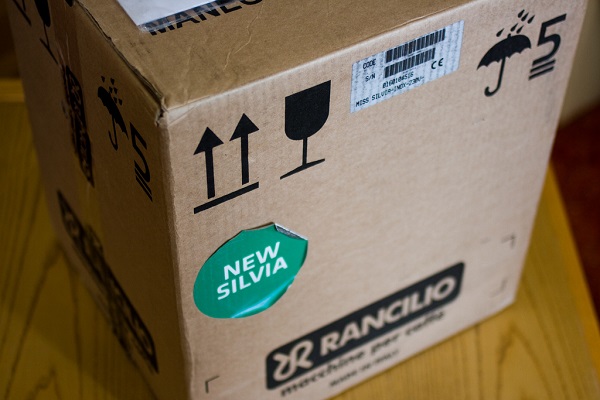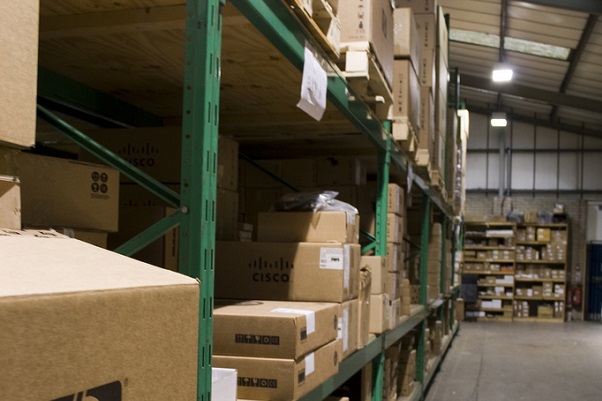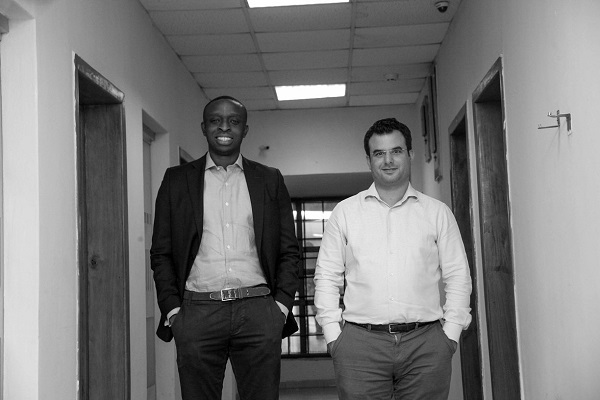Tunde Kehinde is one part of the team of two that founded ACE, the Lagos-based logistics and courier startup, back in 2013. The other member of the team is Ercin Eksin, a Turkish national. They had both worked together at Jumia – Tunde was one half of the founding CEOs and Ercin was the COO – up until 2013, when both left to start ACE.
Ecommerce has been growing steadily in Nigeria and has slowing been unbundling itself with players also staking their claims in its many facets – price comparison, merchant stores, logistics and so on.
Logistics is still the toughest nut to crack considering the peculiarities of the Nigerian environment. So, why did these two decide to pitch their tents right in the centre of that? We caught up with the two founders to find out.
First of all, what made you leave Rocket Internet? Is there a story there?
Tunde: There was no big controversy. The Rocket framework partners with local players, provides funding etc. So, as the company grew really big, we were able to identify several pain points of which fulfilment and logistics is the biggest. In Nigeria, addressing is poor, the road network is bad and all other considerations makes the logistics part of ecommerce a huge challenge. We tried to look ahead and saw that ecommerce would only grow bigger. We knew shops focusing on particular items would soon begin to spring up so solving the fulfilment and logistics would position us in a favourable place. We were happy to leave and make that jump.
It must have been risky. Why would you think that you were the ones to solve this?
Ercin: Like they say, you have to be a little crazy, you have to believe you can make it happen. We had a few things in our toolkit that gave us some confidence: between myself and Ercin, we’ve hired close to two to three thousand people in Nigeria and several emerging markets; Ercin has done ecommerce and direct consumer logistics in 10 different countries; the supplier consumer relationships at Jumia, I led that in terms of actually convincing clients to use our platform. And we also built a strong tech team.
We built our tracking software in-house, from scratch; our riders use a mobile application to complete their deliveries, which provides real time tracking, that we also built from scratch, and different folks on the team have varied experience whether it’s PwC in New York, Toyota, Goldman Sachs and so on. I’m not saying all those things will make you succeed, but the team was right, we got funding from day one and the timing was just right.
Let’s talk about funding, from day one. That’s pretty fascinating. It’s been super hush hush who put in the first million dollars, or thereabout, into your business. All we know is you’ve gotten almost three million as at today. I somehow gathered EchoVC was the first investor…
Ercin: In this market it’s very difficult to raise capital for startups. From the investor perspective, there haven’t been successful exits yet outside of nigeria, therefore people find it difficult to invest in business. But now, there are new companies coming up and there will be exits and that will boost the ecosystem. In our case, we started out with family, friends and individual angel investors. In the case of EchoVC, they are not an investor with us. And that’s how much we can comment on it.
Tunde: In the first year, the focus was just running as fast as humanly possible to set up the business. We actually started with our own money in order to just get the business off the ground. Our first office was someone’s BQ. We went into five cities, signed a couple of clients and started delivering as much as possible and we tried to focus a lot on the product.
We figured, it’s better for us to make our mistakes in the dark and get the product reasonably strong. When we’d nailed that there would be a roadmap to scaling what we want to do very quickly, and that’s when you can then talk more about what you’re doing to investors, and that was our approach.

So we have Savannah fund, Africa Angel Network, Interswitch and a few other folks putting together $2.6 million, which is a pretty large round. How did you convince these people?
Ercin: Growth is a bit tricky to measure. But we showed them a strong team, their backgrounds, experience, which is really important to investors also. They also tried the services themselves, and word of mouth was also key as it’s a major driver of business in Nigeria. All our existing investors, for the first round, they e
Tunde: Ecommerce can be as high as 6% of the GDP in a lot of countries, and if Nigeria can reach even 1 or 2% then it’s obvious there is huge potential here. Yes there’s Jumia, there’s Konga but those guys are scratching the surface, it just foreshadows more players entering the field.
Secondly, there’s our background, there’s the technology driving the business and then there’s the fact that we launched day one and were making money from day one. That showed that we were real entrepreneurs and ready to make it happen, which is what got us the initial seed.
You mentioned something about Jumia and Konga barely scratching the surface which I found interesting. We noticed towards the end of 2014 and the beginning of 2015, they began actively integrating vertically, especially in the area of logistics. That’s ACE’s business right there. And I’m also aware that these were your initial clients, which means if they were doing this, you no longer had their business. What were your thoughts around that development?
Tunde: Our belief is two things – we use ecommerce as examples a lot because it’s what people get excited about at the moment, but we think the opportunity is beyond ecommerce. Right now, we work with financial institutions, insurance companies, fast food, clothes and consumer goods companies. The whole idea of what we’re doing is, we want to be able to deliver whatever the customer wants, even if it’s their everyday stuff. So, it’s beyond ecommerce.
We’re also very focused on the long term. There’s a reason why the big international logistics players haven’t really done well in direct to consumer logistics in this market. What they tend to focus on is state to state, country to country because they know how difficult it is to find the consumer. It’s extremely difficult. At ACE, we have cases where up to a third of our customers reschedule, saying “Look, sure I want the package but I don’t want it on Monday. Come next week Friday at noon, at this other address.” And with those international players, their core structure makes it impossible for them to address. So, what they ideally want is to deliver in bulk to a location. But to take a thousand packages to different locations is very difficult.
It becomes even more difficult when trying to build a world class storefront or market place, or customer service and then tackle logistics as well. That’s why I doubt strongly, that they’re seeing our kinds of metrics. What I don’t understand though is why the ecommerce guys are doing logistics. If I’m a big Nigerian ecommerce company/startup and a big international player comes into the market, the question I’d ask myself is, “What is the one thing they can’t replicate? Getting the package to the customer. It’ll take them time. It’ll distract them from their core business if they try to tackle that as well.
Ercin: The models that are successful around the world involve large ecommerce platforms investing in logistics companies. They focus on their core business but also leverage other platforms to drive that business. In logistics, there are certain things/practices that are global and there are others that are culturally dependent.

Cultural dependence, this is a good place to discuss the pay on delivery model. The obvious challenge is actually getting the money from the customer. On the other hand, we know how much your business is dependent on that which everyone seems to hate but has to do anyway.
Ercin: When Jumia first came in, they started with pay on delivery. It was also started in South East Asia as well. It’s not convenient for the e-tailers but it met a need – the psychological . In South East Asia, the penetration was very low. Here in Nigeria, the psychological barrier was higher than the tech barrier. People were not ready to put their card details into a site that was relatively new. There were also other things that weren’t ready. For one, monitoring systems. There was no integrated one. So the pay on delivery model reduced the barrier significantly.
Same thing with ACE. We always gun for ideas that would reduce the barriers for people to access their goods. We took into consideration these culturally dependent parts when creating our system. We’ve worked out the kinks so it works almost automatically.
Tunde: Aside Jumia and Konga, we’re the biggest pay on delivery player. Buttressing what Ercin said, already there’s that psychology of distrust in the environment based on day to day experiences. From your tailor to your airline, to the brick and mortar store down the street, how easy is it for you to get a refund? Even when you do,the stress sometimes is greater than the refund. Naturally, most people would settle for the pay on delivery method. So, until that trust is there, until we can answer the question on everyone’s minds, “When something goes wrong, will you take care of me?” we’ll keep cycling round the pay on delivery model.
Considering the fact that Interswitch’s investment was from a 10 million dollar budget which they said is for development of technology and supporting fintech startups, how much are you leveraging this relationship with Interswitch?
Tunde: What we’re hoping for with our relationship with Interswitch is that whatever way the customer prefers to pay is available through our combined entities. Thing is, you can’t force the customer to shop online or off. What you can do is follow the customer journey. Sometimes, the customer wants to physically go to the mall or market; they want the full social experience. Sometimes, they can’t be bothered; or there’s just no time. So, they sit behind their desk and order.
Are you guys developing inventory management tools? And is ACE actually acting as an enabler not just in the last mile of the ecommerce trail but the actual commerce experience itself?
Ercin: For the question about inventory management tools, the answer is no. We’re ecosystem aware. We are already partnering with people tackling certain parts of the challenges we face in our business. We believe in partnerships. That way we can double down on our core business.
Our focus is also on digitizing. Today, our packages are digitized, all of them. When an item physically changes hands, it virtually changes hands as well. That way everyone (the end customer, the merchant and ACE) knows what is going on, who touched it last, where it is and so on. This has helped us a lot in getting decentralised which is key for logistics. It also empowers the team. So, there’s actually a lot of tech powering ACE – our riders, our merchants and our hubs.
Tunde: Our big focus is logistics. That’s where we think we can have the most value. But we also want to help our merchants scale. For us to succeed, the experience has to start from the merchant’s side. Because if the item is not packaged properly, if it doesn’t leave the warehouse on time, and so on, the delivery may not be a success. So we usually tell our clients, “Here’s what you can do better.”
I’ve heard horror stories about pay on delivery. If anyone knows first hand how tough pay on delivery is, it’s you guys. Because people have not paid, they can just turn down orders. I want to know what the challenges are as well as the failure rates. I’ve heard you have good numbers so I need actual metrics
Ercin: Prepaid is 99+percent success and for post paid, we have an average of 85% (the market average is around 60-70%).
The main challenge is with post paid. Because ideally we’re not looking for a location but for a person. We’re looking to deliver it to you and you might be in a meeting, or you may not have the cash on you at the time. Our transparency has helped us as well. We talk to the customer, prepare him/her and combined with our distribution system, and the fact that so much of the process is automated, that’s why we have a higher than average success rate in terms of pay on delivery.
Actually, in December, we had so many orders, Tunde and I had to do deliveries as well. I ended up delivering to a military base. If you think Jeff Bezo’s style, like the customer oriented approach, you can develop systems that will make things as seamless as possible.
Aside people not digitizing in order to make things easier to track, what other things would make things move more efficiently?
Tunde: Understanding the customers, which for us are the buyer and the merchant. How well is the merchant established, how easy is it for buyers to find what they’re looking for on his site eg a dress in the right size, are they capturing customer info right – first name, last name, proper address, two phone numbers etc? We always strive to understand all our customers in depth. This feeds into our high success rate. If we see other players launching logistics businesses, we don’t get worried, reason being, if you’re not focused on that, if it’s not your core, it will be hard. And it will lead to your inventory piling up.
That’s why we’re interested in our merchants – how do you work, what are your processes how can we help you? If you do well, we’ll do well.

Konga partnered with NIPOST as a strategic move to scale the infrastructure hurdle. What challenges do you experience in policy and infrastructure?
Tunde: On paper, the Konga – NIPOST partnership is fantastic. The big challenge is still fulfilment. That’s what will shoot up the success rate, not necessarily the partnerships or even the marketing.
The demand is far higher than the supply. Nigeria is the world’s best kept secret. We are becoming more and more sophisticated. Our role is to help the next 200 Kongas to be able to meet that demand.
How much business be moving or how big must a merchant get to before considering using ACE?
Ercin: Once you can integrate our API into your system we’re good to go. We also have tools to help with digitizing the packages. Once they have a dedicated IT team, things should be easy. Ideally we’ll take all comers, but we’re not yet there an individual can come in and get a fantastic experience but it’s in the next phase.
In terms of metrics, how far has ACE come?
Ercin: We currently have close to 300 merchants working with us, and they all came on board without marketing, just word of mouth. We’ve delivered to approximately 300, 000 customers. Some of our merchants ship about 20-30 packages a day, some 100/day. We make our process simple and standardised so whenever you need us, we’re available.
We’re also always recruiting because even if you have the best tech in the world, without the right skills, we won’t be able to deliver. So, we’re always on the lookout for hungry, intelligent and skillful people. Presently, the team consists of 150 people across five cities – Lagos, PH, Ibadan, Abuja and Abeokuta.
As ACE continues to grow, we wish the team all the best.
Photo Credit: Christian Khadluba, mikecogh via Compfight cc



















